COVID-19: TCTMD’s Daily Dispatch for June Week 4
We’re curating a list of COVID-19 research and other useful content, and updating it daily.

TCTMD reporter Todd Neale is keeping up on breaking news and peer-reviewed research related to COVID-19 and will update daily. If you have something to share, tell us. All of our COVID-19 coverage can be found on our COVID-19 Hub.
June 25, 2021
So you’ve recovered from COVID-19: what’s your long-term outlook? BMJ Editor-in-Chief Fiona Godlee, MB BChir, explores what’s known and what remains unclear, not only for patients but also for healthcare systems now struggling with long wait lists and limited resources. And as a feature story also in the BMJ makes clear, the growing and diverse group of people experiencing “long COVID” makes it hard to know “what treatment path to put them on.” Up to 376,000 people in the United Kingdom alone have reported enduring symptoms beyond the 1-year mark postinfection.
The British Medical Association has released the results of its survey on burdens faced by doctors over the past 15 months, concluding that eight out of 10 doctors report “moral distress,” defined as “the psychological unease generated where professionals identify an ethically correct action to take but are constrained in their ability to take that action,” a BMJ synopsis explains.
A single dose of either the Pfizer/BioNTech or Oxford/AstraZeneca vaccine among 10,412 long-term care residents in England provided significant protection against COVID-19, results from the VIVALDI observational study show. Writing in the Lancet Infectious Diseases, investigators say vaccine effectiveness was 56% after 28 days, maintained for at least 7 weeks, then rose to 62% between 35-48 days. “Our findings suggest that vaccination also has an effect on SARS-CoV-2 transmissibility by reducing the total number of infections in residents, as well as their infectivity,” they conclude.
A second study, also published June 24, 2021 in the Lancet Infectious Diseases and focused on the same two vaccines, confirms that a single dose of either “substantially” reduces the risk of COVID-19 hospitalizations among people 80 years and older.
 That working women bore the brunt of childcare duties during COVID-19 has been documented in multiple studies: now researchers writing in JAMA Health Forum say that state-level childcare facility closure was strongly associated with greater rises in unemployment for women than men. “Labor market outcomes may differ by sex, and well-intentioned policies may exacerbate existing inequities,” they conclude. “Our findings suggest that additional policy interventions to support women in families with children are needed.”
That working women bore the brunt of childcare duties during COVID-19 has been documented in multiple studies: now researchers writing in JAMA Health Forum say that state-level childcare facility closure was strongly associated with greater rises in unemployment for women than men. “Labor market outcomes may differ by sex, and well-intentioned policies may exacerbate existing inequities,” they conclude. “Our findings suggest that additional policy interventions to support women in families with children are needed.”
A case report published in Heart Rhythm warns that the nucleotide analog remdesivir (Veklury, Gilead) can induce hemodynamically significant sinus node dysfunction. Bradycardia, managed using a dopamine infusion during the 5-day course of remdesivir, resolved after the treatment ended. “While it is known to be well tolerated and effective, it's critical to note its potential adverse effects on the cardiovascular system,” lead author Jomel Patrick Jacinto, DO, is quoted in a press release. “To our knowledge, this is the first reported case of remdesivir-induced hemodynamically unstable sinus bradycardia."
A cross-sectional study across 47 US states, reported in JAMA Health Forum, found that hospitalizations and mortality increased as states reopened after lockdowns. “This estimate implied that nationwide reopenings were associated with 5,319 additional people hospitalized for COVID-19 each day” over a 3.5-month period, researchers say.
The vast majority of people worldwide are still susceptible to COVID-19 infection, a global review of serosurveys concludes in PLOS ONE. Among nearly 1,000 studies looking at population seroprevalence between January 1 and December 31, 2020, including 9.3 million subjects in 74 countries, just 4.5% had detectable antibodies against SARS-CoV-2. Seropositivity was highest among people living in assisted living and long-term care facilities and lowest in babies—it also had wide geographical variation.
In the Lancet Microbe, Brittany E. Kula, MD, and colleagues review what’s known about invasive mold disease, including the mucormycosis (“black fungus”) that has grabbed headlines in India. The review, focused on autopsy studies, concludes that COVID-19-associated pulmonary aspergillosis is rare on autopsy.
 Also in PLOS ONE, an analysis of shopping patterns in the pandemic’s first month indicates that people with the greatest exposure to media coverage were the most likely to modify their habits. The majority of those surveyed said they made fewer shopping trips in March 2020 but spent more when they did, most notably on food and hygiene products. “Similar changes in foraging behavior are found in rodents when expecting a predator,” the authors note.
Also in PLOS ONE, an analysis of shopping patterns in the pandemic’s first month indicates that people with the greatest exposure to media coverage were the most likely to modify their habits. The majority of those surveyed said they made fewer shopping trips in March 2020 but spent more when they did, most notably on food and hygiene products. “Similar changes in foraging behavior are found in rodents when expecting a predator,” the authors note.
Concern is mounting in India over a new, more-virulent substrain of SARS-CoV-2 locally referred to as Delta Plus. “The new variant carries a spike protein mutation that is also found in the Beta variant, first identified in South Africa, though it’s unclear how that shared mutation might affect the variant’s function,” the New York Times explains.
The European Medicines Agency (EMA) has approved an additional production site, based in Anagni, Italy, where Janssen’s COVID-19 vaccine can be manufactured.
TCTMD Managing Editor Shelley Wood contributed today’s Dispatch.
June 24, 2021
Changes in life expectancy estimates due to COVID-19 in the United States are larger than expected, researchers write in JAMA Network Open, with the greatest declines anticipated for nonwhite Americans. While the reduction in 2020 life expectancy is projected to be 0.68 years overall, that number rises to 2.10 for the Black population and 3.05 for the Latino population, Theresa Andrasfay, PhD, and Noreen Goldman, DSc, write. KHN.org delves into the implications, noting that the drop in life expectancy is the biggest decline since World War II.
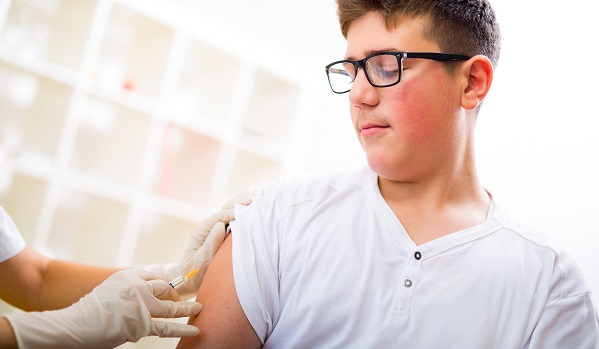 The US Centers for Disease Control and Prevention (CDC) Advisory Committee on Immunization Practices now says that mRNA vaccines are “likely” associated with myocarditis in young people, but the risk is currently estimated at about 12.6 per million second doses. Males are more likely than females to develop the side effect, which is more common in the first few days following a second dose. Almost four out of five confirmed cases have resolved without lasting damage. The US Food and Drug Administration will update vaccine labelling to note the rare risk, an FDA deputy said yesterday. TCTMD has the story.
The US Centers for Disease Control and Prevention (CDC) Advisory Committee on Immunization Practices now says that mRNA vaccines are “likely” associated with myocarditis in young people, but the risk is currently estimated at about 12.6 per million second doses. Males are more likely than females to develop the side effect, which is more common in the first few days following a second dose. Almost four out of five confirmed cases have resolved without lasting damage. The US Food and Drug Administration will update vaccine labelling to note the rare risk, an FDA deputy said yesterday. TCTMD has the story.
More and more people around the world are getting a different vaccine for their second dose, although the vast majority received the same product twice, New York Times reports. The BBC reported earlier this week that German Chancellor Angela Merkel had received Moderna for her second dose after having had the Oxford/AstraZeneca shot back in April. According to the Times, some countries have taken this approach “out of necessity,” but there are some scientists and health policy advisors who “are interested in the possibility that giving different shots to the same person could have significant advantages.”
 Vaccinations can reduce household transmission of COVID-19 by 40-50%, an analysis from the Household Transmission Evaluation Dataset (HOSTED) suggest. The study tracked individuals who tested positive for SARS-CoV-2 after being vaccinated at least 21 days prior and found that secondary cases were far less common among the family members. Most of the index patients had had only one vaccination, the authors note, but in line with earlier studies, the data support the theory that even people who are not fully vaccinated may not be as infectious as their nonvaccinated counterparts who fall ill; they also were less severely symptomatic. The data are published as a research letter in the New England Journal of Medicine.
Vaccinations can reduce household transmission of COVID-19 by 40-50%, an analysis from the Household Transmission Evaluation Dataset (HOSTED) suggest. The study tracked individuals who tested positive for SARS-CoV-2 after being vaccinated at least 21 days prior and found that secondary cases were far less common among the family members. Most of the index patients had had only one vaccination, the authors note, but in line with earlier studies, the data support the theory that even people who are not fully vaccinated may not be as infectious as their nonvaccinated counterparts who fall ill; they also were less severely symptomatic. The data are published as a research letter in the New England Journal of Medicine.
Giving a third dose of the Pfizer/BioNTech vaccine to recipients of solid organ transplants significantly boosts the immunogenicity of the vaccine, according to another research letter in NEJM. No cases of COVID-19 were reported among the organ recipients in the series.
Facial nerve (Bell) palsy has been identified as a possible reaction to vaccines, including those in use against COVID-19. In JAMA Otolaryngology-Head & Neck Surgery, Israeli researchers report their single-center experience with 37 patients over a 2-month period, concluding that no association could be established between the Pfizer/BioNTech vaccine and acute onset facial nerve palsy.
In the same journal, researchers from Case Western Reserve University present a separate analysis confirming that COVID-19 itself increases the risk of Bell Palsy, and that the facial nerve paralysis is more common among people with COVID-19 than it is in people who have been vaccinated against the virus.
 People who lose their sense of smell following COVID-19 infection can still regain it up to a year later, researchers report in JAMA Network Open. “Our findings suggest that an additional 10% gain in recovery can be expected at 12 months, compared with studies with 6 months of follow-up that found only 85.9% of patients with recovery,” they write. “This supports findings from fundamental animal research, involving both imaging studies and postmortem pathology, suggesting that COVID-19–related anosmia is likely due to peripheral inflammation.”
People who lose their sense of smell following COVID-19 infection can still regain it up to a year later, researchers report in JAMA Network Open. “Our findings suggest that an additional 10% gain in recovery can be expected at 12 months, compared with studies with 6 months of follow-up that found only 85.9% of patients with recovery,” they write. “This supports findings from fundamental animal research, involving both imaging studies and postmortem pathology, suggesting that COVID-19–related anosmia is likely due to peripheral inflammation.”
TCTMD Managing Editor Shelley Wood contributed today’s Dispatch.
June 23, 2021
The US Centers for Disease Control and Prevention (CDC) Advisory Committee on Immunization Practices is meeting now to discuss the myocarditis signal seen among teens and young adults vaccinated with mRNA vaccines against COVID-19. Today’s discussion had originally been scheduled for last week but was postponed to take place today. According to the New York Times, the CDC is tracking nearly 800 cases, although not all have been definitively linked to vaccinations. TCTMD is planning a full story on the day’s data and conclusions.
 German Chancellor Angela Merkel, speaking ahead of European Union (EU) summit tomorrow, proposed that travelers from the United Kingdom, where the Delta variant is surging, should be quarantined no matter how or where they arrive in the EU, the Guardian reports. “The union’s agency for disease control forecast that the Delta variant of COVID will account for 90% of cases in member states by the end of August.”
German Chancellor Angela Merkel, speaking ahead of European Union (EU) summit tomorrow, proposed that travelers from the United Kingdom, where the Delta variant is surging, should be quarantined no matter how or where they arrive in the EU, the Guardian reports. “The union’s agency for disease control forecast that the Delta variant of COVID will account for 90% of cases in member states by the end of August.”
US lawmakers are expanding their investigation into Emergent BioSolutions, which operates a vaccine-making plant in Maryland. Millions of doses were discarded earlier this year over contamination concerns. The plant has been closed since mid-April, the Times notes.
New data from all RT-PCR confirmed cases of COVID-19 in Denmark, published in the Lancet: Infectious Diseases, confirms that infection with the B.1.17 variant, now known as Alpha, was significantly more likely to send patients to hospital as compared with other lineages circulating in Denmark between January 1 and March 24, 2021. Risk of hospitalization was increased by 42%.
 Those findings resonate with a second observational UK study, also published in Lancet Infectious Diseases. Here, researchers linked large primary care, national critical care, and COVID-19 testing databases to show that patients infected with the B.1.1.7 variant had double the rate of critical care unit admission and a 65% higher risk of death over 28 days, as compared with people infected with other SARS-CoV-2 lineages.
Those findings resonate with a second observational UK study, also published in Lancet Infectious Diseases. Here, researchers linked large primary care, national critical care, and COVID-19 testing databases to show that patients infected with the B.1.1.7 variant had double the rate of critical care unit admission and a 65% higher risk of death over 28 days, as compared with people infected with other SARS-CoV-2 lineages.
Physician hours in the United States declined significantly in the United States since the start of the COVID-19 pandemic. Fewer were working in full-time roles, some were laid off, and others may have been working in different roles, researchers report in JAMA Network Open. As other analyses have suggested, there’s also a signal that female physicians bore a disproportional uptake of childcare responsibilities that took them out of the physician workforce, at least temporarily.
The state of Kansas took a patchy approach to mask mandates in the early months of the pandemic, and later as the second wave gathered speed. Now an analysis confirms that daily case counts, hospitalizations, and deaths were significantly higher in counties with no mask mandates as compared with those that had them in place. “Our results comparing mask-only policies with masks plus additional restrictions suggest that mask-wearing is associated with these reductions,” they write in JAMA Network Open.
TCTMD Managing Editor Shelley Wood contributed today’s Dispatch.
June 22, 2021
The United States is “unlikely” to meet its goal of vaccinating 70% of US adults by July 4, the White House acknowledged today. A New York Times analysis predicts that the country will come just shy, “with about 67% of adults partly vaccinated” by that date. President Biden had announced the ambitious goal on May 4, 2021.
Meanwhile India is continuing to step up its efforts, topping 8.6 million doses in a single day yesterday, setting a national record.
South American is now the “world’s hot spot,” a Wall Street Journal article notes, even as the virus starts to recede in other hard-hit nations. “Driving the surge are more infectious variants, low vaccination rates, weak healthcare systems and, in some cases, governments that gave up on controlling the virus,” write Samantha Pearson and Luciana Magalhaes.
The European Medicines Agency (EMA) has approved two new manufacturing sites for the Pfizer/BioNTech vaccine in Europe, one in Reinbek, Germany, and the other in Stein, Switzerland, effective immediately.
 An analysis of COVID-19 infections among healthcare workers in the Kaiser Permanente Southern California system suggests that the vast majority were infected outside of the heathcare setting. And while there were no differences in positivity between workers who wore medical masks when performing routine, nonaerosolizing patient care and those who wore respirator masks for patient care in areas with higher risk of infection, investigators did see higher rates of infection for workers wearing no masks as compared with those who wore either respirator or medical masks during the period prior to mandatory masks. Full results were published in JAMA Network Open.
An analysis of COVID-19 infections among healthcare workers in the Kaiser Permanente Southern California system suggests that the vast majority were infected outside of the heathcare setting. And while there were no differences in positivity between workers who wore medical masks when performing routine, nonaerosolizing patient care and those who wore respirator masks for patient care in areas with higher risk of infection, investigators did see higher rates of infection for workers wearing no masks as compared with those who wore either respirator or medical masks during the period prior to mandatory masks. Full results were published in JAMA Network Open.
Also in JAMA Network Open, a qualitative study from France explores the lived experiences of people whose family members died in intensive care units during the lockdowns. “Participants reported difficulties in establishing a bond with the ICU team and maintaining a relationship with their loved ones during their stay in the ICU,” the authors write. “They also described a feeling of ‘stolen moments’ after the death of their loved one, generating strong feelings of disbelief that could potentially lead to complicated grieving.” An invited commentary explores the hard lessons learned.
The US Centers for Disease Control and Prevention (CDC) is recommending “catch-up” shots to make up for the stark declines in routine childhood immunizations during the pandemic. Without this, breakouts of measles and whooping cough could be on the horizon, writes Consulting Editor Joan Stephenson, PhD, in JAMA Health Forum.
Antithrombotic therapy is “not justified” in mildly symptomatic COVID-19 patients who are recovering at home and have no other indication for taking the drugs, investigators for the ACTIV-4b trial have announced. The randomized, double-blind, US National Institutes of Health-sponsored study was stopped early on the recommendation of the trial’s data and safety monitoring board. TCTMD has the story.
Countries around the world are bracing for the “inevitable rise” of the Delta variant, a news story in Nature reports, noting that the strain is estimated to be 60% more transmissible than the original Alpha variant. Moreover, Delta is “moderately resistant” to vaccines, “particularly in people who have received just a single dose.”
Also in Nature, a study assessing the in vivo efficacy against SARS-CoV-2 of different monoclonal antibody treatments developed by the major players in this space—Vir Biotechnology, AbbVie, AstraZeneca, Regeneron, and Lilly—suggests that “many, but not all, of the antibody products with Emergency Use Authorization (EUA) should retain substantial efficacy against the prevailing SARS-CoV-2 variant strains.”
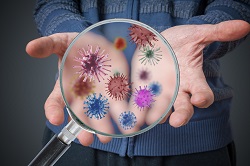 The goal of developing vaccines that protect not only against SARS-CoV-2, but also other coronaviruses of the past and future, remains a key area of research. Now researchers writing in Science have published their mouse study demonstrating efficacy of a “chimeric spike” mRNA vaccine capable eliciting antibodies against different immunogenic domains. “Our demonstration of cross-protection against multiple Sarbecovirus strains in mice lends support to the hypothesis that universal vaccines against group 2B CoVs are likely achievable,” they conclude.
The goal of developing vaccines that protect not only against SARS-CoV-2, but also other coronaviruses of the past and future, remains a key area of research. Now researchers writing in Science have published their mouse study demonstrating efficacy of a “chimeric spike” mRNA vaccine capable eliciting antibodies against different immunogenic domains. “Our demonstration of cross-protection against multiple Sarbecovirus strains in mice lends support to the hypothesis that universal vaccines against group 2B CoVs are likely achievable,” they conclude.
TCTMD Managing Editor Shelley Wood contributed today’s Dispatch.
June 21, 2021
Thousands of protesters took to the streets in cities across Brazil yesterday “blasting” President Jair Bolsonaro “for not acquiring vaccines fast enough and for questioning the need for mask-wearing,” Reuters reports. The country’s COVID-19 death toll passed half a million over the weekend, second only to the United States. “The government faces fierce criticism for passing up early opportunities to buy vaccines. Pharmaceutical maker Pfizer said it got no response to offers to sell vaccines to the government between August and November last year.”
The death count in the United States passed 600,000 last week, the New York Times notes, although trends remain positive. For the first time since October, for example, there were no new deaths in the state of Maryland, the Baltimore Sun announced today. And in India, new infections remained below 100,000 for the 14th day in a row, the Times of India reported. The country also performed a record 8.3 million vaccinations Monday, which is the day shots became free for all. Indonesia, however, faced its highest single-day jump in new infections, the Associated Press reports.
Both Canada and the United States announced that they will extend the closure of the Canada-US border until July 21, 2021, limiting crossings to essential travel. The US border with Mexico will also remain closed.
Centers for Disease Control and Prevention (CDC) Director Rochelle Walensky said Friday on Good Morning America that the Delta variant is poised to “probably” become dominant in the United States within the next few months, raising concerns about vaccine effectiveness and hospitalization rates. “Vaccines have been effective against the variant, which first appeared in India, but Walensky expressed concern that the virus could mutate and render vaccines less effective,” Politico reports.
 A cross-sectional study published in JAMA Internal Medicine links small and informal social gatherings, particularly children’s birthday parties, to SARS-CoV-2 transmissions. Among 2.9 million households included in the study, those both in regions with a higher COVID-19 burden and with members who’d had a birthday in the 2 weeks prior had 8.6 more diagnoses per 10,000 individuals than did households without a birthday in the 2 weeks prior, a relative increase of 31% above the county-level prevalence. This rate was also significantly higher than that of households in counties with lower levels of circulating COVID-19 infections.
A cross-sectional study published in JAMA Internal Medicine links small and informal social gatherings, particularly children’s birthday parties, to SARS-CoV-2 transmissions. Among 2.9 million households included in the study, those both in regions with a higher COVID-19 burden and with members who’d had a birthday in the 2 weeks prior had 8.6 more diagnoses per 10,000 individuals than did households without a birthday in the 2 weeks prior, a relative increase of 31% above the county-level prevalence. This rate was also significantly higher than that of households in counties with lower levels of circulating COVID-19 infections.
Most of the research activity around COVID-19 vaccines, drugs, and diagnostic tests has been focused around the “spike” and nucleocapsid proteins of the virus. A paper published in PLOS Biology today, however, makes the case for research focused also on other proteins produced by SARS-CoV-2 after investigators detected antibodies to other proteins. This finding, they say, in addition to expanding targets for COVID-19, opens a window to novel drugs and vaccines for other coronaviruses “that may emerge in the future.”
Black, Asian, and mixed-race children in England were less likely to have COVID-19 tests and more likely to test positive than white children, research published in JAMA Pediatrics concludes. “These findings suggest that race may play an important role in childhood COVID-19 outcomes, which reinforces the continued need for a race-tailored focus on health system performance and targeted public health interventions,” investigators say.
As of May 22, 2021, 57% of adults 18 and older in the United States had had at least one dose of a COVID-19 vaccine, researchers note in Morbidity and Mortality Weekly Report (MMWR). But in a worrying trend, the number of younger people getting vaccinated and the rate of vaccination each were significantly smaller and slower. “If the current rate of vaccination continues through August, coverage among young adults will remain substantially lower than among older adults,” they conclude.
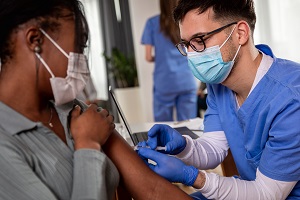 A second study, also in MMWR, reports that non-Hispanic Black adults, people between the ages of 18 and 24, as well as adults with less education, lower household incomes, and no health insurance, are also the ones with the lowest reported vaccine coverage. “Concerns about vaccine safety and effectiveness were commonly cited barriers to vaccination,” researchers say.
A second study, also in MMWR, reports that non-Hispanic Black adults, people between the ages of 18 and 24, as well as adults with less education, lower household incomes, and no health insurance, are also the ones with the lowest reported vaccine coverage. “Concerns about vaccine safety and effectiveness were commonly cited barriers to vaccination,” researchers say.
Organizers of the 2021 Olympics in Tokyo announced today that up to 10,000 domestic spectators will be permitted inside the venues, up to half of the intended capacity. That’s against the recommendations of medical advisors, Reuters reports. Meanwhile, Tokyo Governor Yuriko Koike said over the weekend that all designated “public viewing” sites where citizens could watch the events will be canceled due to the COVID-19 pandemic, the Japan Times reports. “After holding talks with Prime Minister Yoshihide Suga, the governor told reporters that some of the six venues planned to be used for the screenings will instead be used for COVID-19 vaccinations.”
In Georgia, a state Senate committee will meet to review the spike in violent attacks on healthcare workers, the Gainesville Times reports. “There were 5,023 reports in 2020 involving the [Northeast Georgia Health System] security services team intervening, up from 4,870 reports in 2019. So far in 2021, there have been 2,313 reports involving the security team,” the article notes.
 That’s probably enough COVID-19 for today: increased screen time among young adults correlates with rising levels of pandemic-related distress, according to researchers who will present their full results later this month at the virtual World Microbe Forum, held jointly by the American Society for Microbiology and the Federation of European Microbiological Societies. “This study highlights that the pandemic did not simply affect people physically, but emotionally and mentally, with various groups being impacted to a greater extent than others," presenter Michelle Wiciak, MD, is quoted in a press release.
That’s probably enough COVID-19 for today: increased screen time among young adults correlates with rising levels of pandemic-related distress, according to researchers who will present their full results later this month at the virtual World Microbe Forum, held jointly by the American Society for Microbiology and the Federation of European Microbiological Societies. “This study highlights that the pandemic did not simply affect people physically, but emotionally and mentally, with various groups being impacted to a greater extent than others," presenter Michelle Wiciak, MD, is quoted in a press release.
TCTMD Managing Editor Shelley Wood contributed today’s Dispatch.
Shelley Wood was the Editor-in-Chief of TCTMD and the Editorial Director at the Cardiovascular Research Foundation (CRF) from October 2015…
Read Full Bio


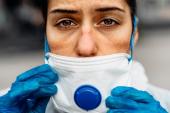

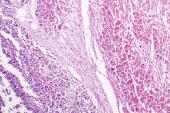
Comments